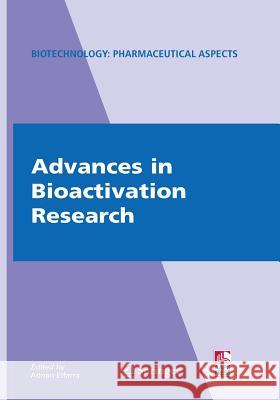Advances in Bioactivation Research » książka
topmenu
Advances in Bioactivation Research
ISBN-13: 9781493938797 / Angielski / Miękka / 2016 / 503 str.
Kategorie BISAC:
Wydawca:
Springer
Seria wydawnicza:
Język:
Angielski
ISBN-13:
9781493938797
Rok wydania:
2016
Wydanie:
Softcover Repri
Ilość stron:
503
Oprawa:
Miękka
Wolumenów:
01
Dodatkowe informacje:
Wydanie ilustrowane











